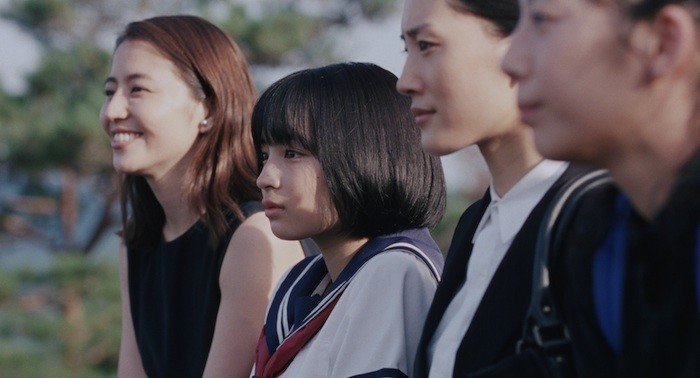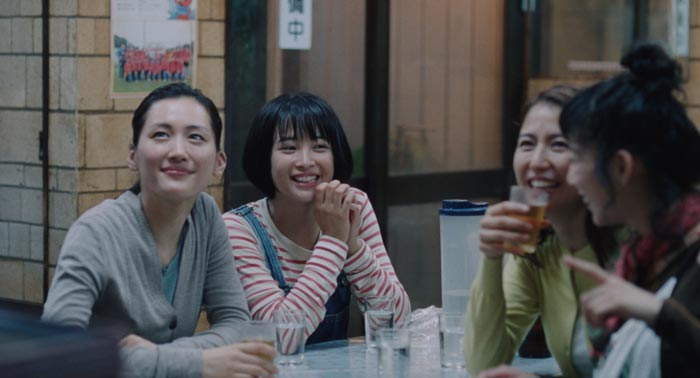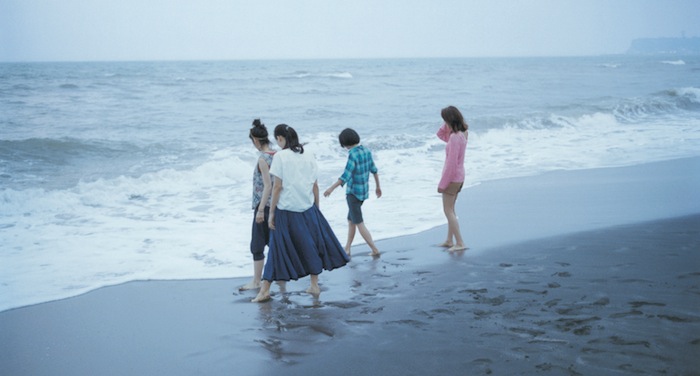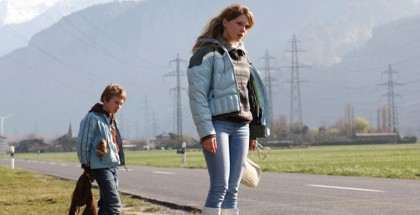Interview: Hirokazu Koreeda on Our Little Sister
David Farnor | On 16, Apr 2016
In a modern age where mainstream directors often seem to be competing to see who can blow the biggest thing up, Japanese director Hirokazu Koreeda has made an art of conquering tiny things.
His latest, Our Little Sister (read our review here), is a family drama about three sisters who attend the funeral of their father, only to meet their half-sister, Suzu (Suzu Hirose), for the first time. She is invited by the eldest, Sachi (Haruka Ayase), to live with them. There are no soap opera shouting matches to be found here, though: Koreeda is a master of the everyday, of capturing complex relationships through the minutest shifts in behaviour.
His film arrives in cinemas and on VOD after Like Father, Like Son, a similarly tender story of parenthood and family. The switch from a project about male relationships to female is entirely a coincidence, he tells us: Our Little Sister originated from much earlier in his career, in 2008, to be exact, when he came across the manga Umimachi Diary, upon which Our Little Sister is based. Nonetheless, the pair give an insight into the director’s knack for intimate insight.
“Intentionally, I do pay a lot of attention to details,” he says. “This film doesn’t have any major incident in it; it’s just one year of the younger sister, the new member of the family, and how she grows up and how everyday is gradually changing, so I was very much aware of paying attention to details of everyday life.”
The result is a tale that lives up the Diary of the manga’s original title, where minor incidents or actions can mean something big. One scene sees the older sisters promise to make non-alcoholic plum wine, after Suzu reacts badly to it – a gentle demonstration of affection.
That’s in the original manga, Hirokazu reveals, but while the main four characters are the same, other episodes have been changed or have been created for the movie to bring out parallels and links between generations and loved ones.
“A series of episodes build up this whole film,” he explains. “That winter morning when they have to get to work and it’s late and they have to work… and the later scene when the bigger sister thinks ‘Oh, no, I’ve forgotten something!’ and it’s actually her bag, and she has a little run back. That’s not in the original – I added that. There’s [another] scene when the mother turns back and she’s delayed, because she can’t find something. Things like that, little details, that relate two episodes and each other. I was conscious of putting those details in.”
“Intentionally, I do pay a lot of attention to details.”
Dinner, in particular, is a communal act that provides a routine heartbeat to the sisters’ growing bond. Does Koreeda find a similar pleasure in such tiny details in his own life? “I do like eating food!” he confirms, with a chuckle.
“I’ve always been particular about food,” he goes on. “With regards to this film, because it starts with death and funeral, I was more aware of counterbalancing that, so eating was important.”
That closeness to the sisters’ day-to-day existence adds a personal feel to the project, one that’s hard not to reflect back upon the director in some way. One subtle theme that does emerge is the way that the characters’ perception of family can change, from Suzu as a young daughter to the maturing Sachi, starting to care for her sibling, or even their returning mother. The director says he identifies with Sachi, to some degree.
“Becoming a father myself has changed the way I view life and my attitude,” comments Koreeda. “My father passed away 15 years ago, but having become a father myself, all the negative things I felt about him, I’m having to re-evaluate because I’m a father now – in the same way that Sachi has adopted the new sister, and her view about her own father changes.”
The kinship between the cast is fantastically realised – the makeshift family home is instantly believable, something that is key to making the whole story work.
“It was a very good combination,” agrees the director, who says rehearsals were part of building that chemistry.
“We did spend a lot of time with them before filming started. We went to the house and worked in the garden and sat in the rooms and then I would work out the oldest would sit here… It took a long process to work out the dynamics of the sisters in the house, but once that was done, by the time we started filming, they were sisters, they didn’t need any instruction. It was very natural.”
When we speak to Koreeda, his film is premiering in the UK at the London Film Festival, the second year in a row he’s had a movie at the event – both to positive acclaim. Is he ever surprised by that response from overseas?
“Yes,” he smiles. “I wasn’t expecting this at all. I’m very pleased, of course, delighted, but I never expected it!”
“Film is changing… I’m not quite sure I’m with the current trend yet.”
His film arrives in cinemas and on-demand on the same day, a release model from distributor Artificial Eye that means the widest possible audience can sample his absorbing brand of small cinema – the polar opposite to the superhero blockbusters currently dominating (or about to dominate) the theatrical box office. Koreeda, though, is a man knowingly out of time, who still shoots with 35mm. He’s unsure about the rise of online video, he admits, following a moment of meditation.
“I am aware film has changed over the years,” he observes. “Sound came in. Then colour. 3-D. Film is a medium that is changing. I accept that. But personally, I’m not quite sure I’m with the current trend yet. I think films are something you watch in cinemas, so I don’t think I’m there yet as a filmmaker – I’m not making films for home viewing.”
“Film began with Lumière showing something to a small number of people,” he continues, after pausing. “There was that. Then Edison was also somebody who did something for viewing. It wasn’t something to gather people around a room, Edison’s was a box, individual. So we’re moving from Lumière back to Edison. It’s interesting we’re going back to that individual viewing, which I appreciate, but personally, I’m not quite sure where that should go next. I’m still taking pictures in 35mm, so I’m not using digital, and that’s the way I’m working at the moment. Maybe, eventually, cinemas will disappear, I don’t know. If that happens, then maybe I have to change the medium I work in. I don’t know. But it’s interesting.”
Hirokazu Koreeda may not be using Netflix anytime soon, but his latest film is certainly worth watching any way you can. Like a glass of plum wine, it’s a small treat to savour – preferably with food.





















